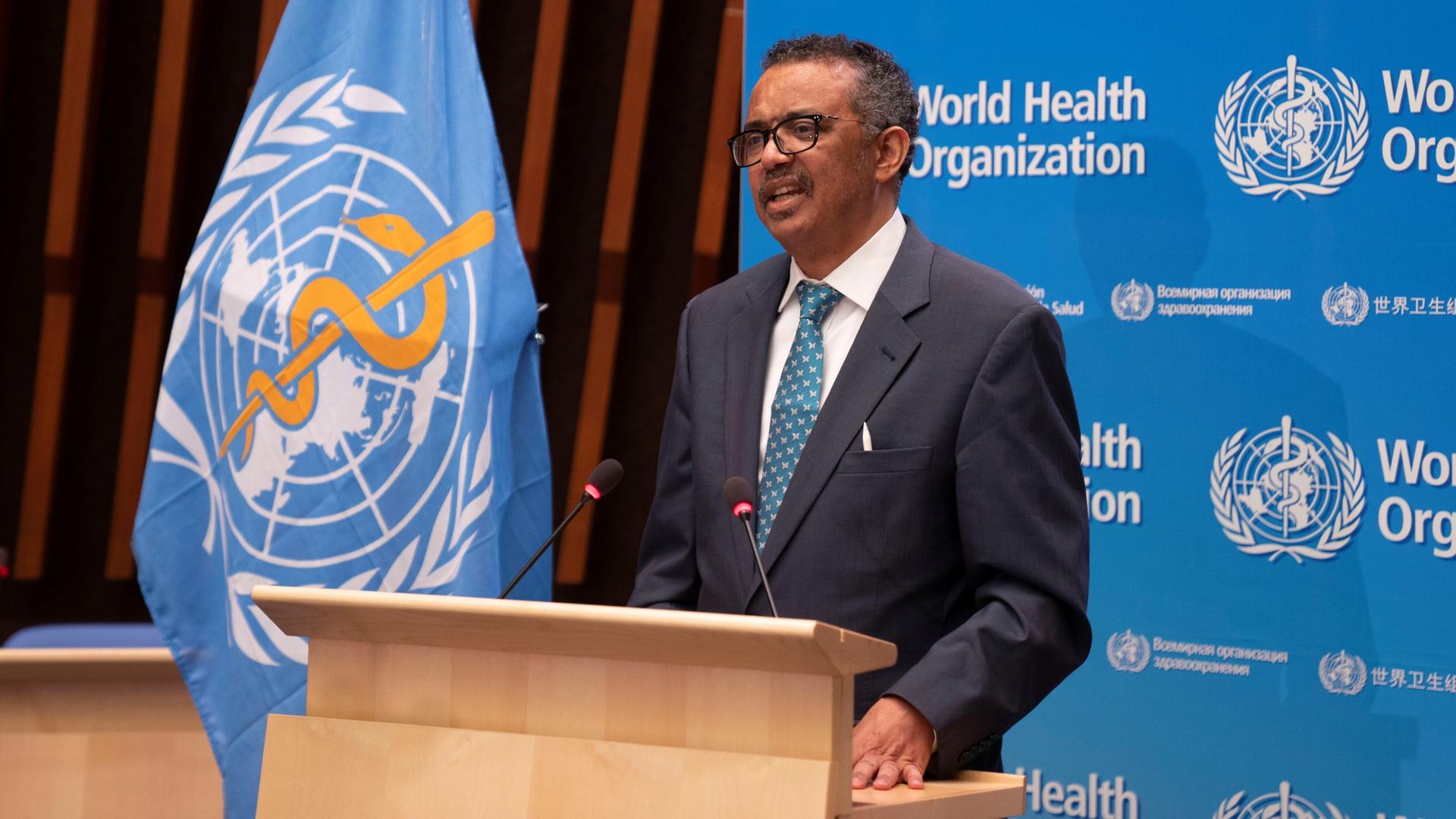Next US president faces uphill battle to rebuild CDC relationship with WHO
In this file photo, Tedros Adhanom Ghebreyesus, director general of World Health Organization (WHO) speaks at the virtual 73rd World Health Assembly (WHA) to address the coronavirus, in Geneva, Switzerland, May 18, 2020.
For decades, the United States has taken the lead on global efforts to contain disease outbreaks, from polio to influenza. But during the coronavirus pandemic — and during the Trump administration generally — the US has become a nation divided on science and public health.
Meanwhile, the second wave of COVID-19 infections in the US has deepened fears that hospitals may be unprepared and that winter will stretch the medical system’s resources.
All of that worries David Heymann, an infectious disease specialist formerly with the World Health Organization and US Centers for Disease Control and Prevention (CDC). He is now a professor at the London School of Hygiene and Tropical Medicine. Heymann spoke with The World’s host Marco Werman about what ails the US and what should be done to rehabilitate American standing in the global health community.
Marco Werman: The World Health Assembly, the decision-making body at the WHO, is meeting next week. On the agenda is beating the pandemic through solidarity and science — and preparing for the next pandemic. How do the consequences of the divisions we’re now seeing in the US impact these goals of the assembly?
David Heymann: In the past, the US has always played a very important role in mobilizing its own resources, but then in helping others around the world to respond to disease outbreaks and to pandemics such as the current one. My career was with the CDC in Atlanta, but during that career, I was detailed many times to WHO, including back in 1976, when there was a first outbreak of Ebola hemorrhagic fever. Along with a team of five other people from CDC, I went out to DRC, then known as Zaire, and we were able to investigate with teams from other countries, which permitted the US to begin a whole research program on Ebola. So that’s just one example of how important the World Health Organization linkage with the US government is.
Some global labs for tracking diseases are based in the US. To what extent does the US situation complicate efforts to just track disease right now?
WHO has what it calls “collaborating centers,” which are laboratories of expertise around the world. At CDC alone, there are 18 to 20 individual laboratories that serve as points of reference for the world in dealing with diseases such as polio, meningitis, and many, many other diseases. So if that collaboration with WHO is cut off, the world loses its ability to use these laboratories unless they establish bilateral relationships with the US.
Related: Where do we stand with testing and a vaccine for the coronavirus?
So in this moment, as the pandemic rages around the globe, how is the shifting role of the US now a less active one? How’s that already impacting efforts to coordinate and contain outbreaks?
Well, I can give you a good example that happened to me personally a few months ago. I am actually teaching here in London at the London School of Hygiene and Tropical Medicine. And I mentor a woman who’s in the government in Mongolia. And during one of our mentorship calls, she said, “I really don’t know who we can turn to now for help with this pandemic coming along because of the failures that are occurring in Europe and in North America. Who do I turn to?” And I had to say you have to turn to countries in Asia, and other countries, because my own agency, the CDC, is not only threatened now with having to withdraw its activities from WHO, but has actually been marginalized by the current response to the outbreak. And by so doing, the US has lost its expertise, in coordinating the [botched] response in the US.
So if Joe Biden wins, what does that mean for these global efforts?
Hopefully that will mean that CDC is restored to its proper place within the US public health system and also that the US again becomes a major player in global health.
If Trump wins, what does that mean?
Well, I think that we’ve seen that there’s been quite a decrease in the attention that’s been paid to science. Hopefully, he would see the importance of listening to the scientific community in the US, which is among the greatest in the world.
This interview has been lightly edited and condensed for clarity.
We want to hear your feedback so we can keep improving our website, theworld.org. Please fill out this quick survey and let us know your thoughts (your answers will be anonymous). Thanks for your time!
